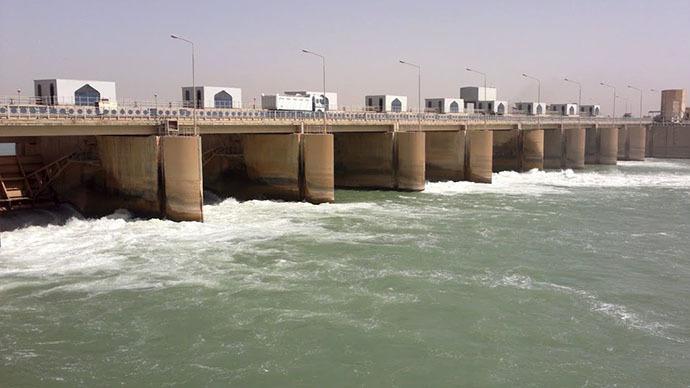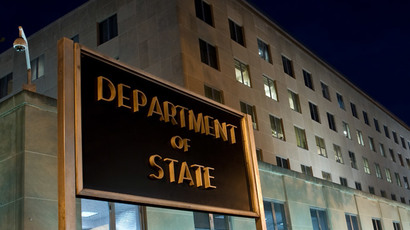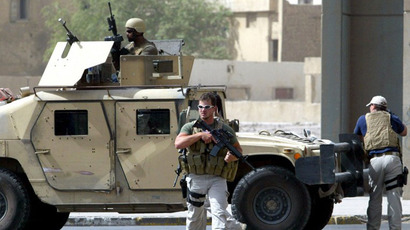Iraqi insurgents block Euphrates to flood army positions near Fallujah

Iraqi militants have captured a dam just south of the city of Fallujah, in order to strategically flood selected parts of the valley and stall the advance of security forces, which have been shelling the city since its seizure by insurgents last year.
One week ago, militants with the Islamic State in Iraq and the Levant (ISIL) flooded the area around the city with the waters of the Euphrates by closing all of the dam’s 10 gates to stop the government forces’ siege of Fallujah.
This also caused the lowering of water levels in the southern provinces, which lead to the Persian Gulf.
Fallujah is about 70km from the capital, Baghdad. In February of this year, ISIL gained control of the area 5km south of the western city, where the dam is located. It is essentially used to distribute the river’s waters evenly and through the western Anbar province.
Officials reported that the flooding around Fallujah had already started displacing families, even though the insurgents opened up five gates to lower the pressure.
Moreover, when the water levels started going down, power blackouts and shortages to the south of Baghdad were witnessed. The area there is entirely powered by steam-powered generators. A spokesman for the Iraqi Electricity Ministry said the power supply from Mussayab power station had decreased from 170 megawatts to just 90 megawatts.
Officials now warn that farming too could suffer from water shortages, as irrigation in Iraq’s southern provinces is entirely dependent on the Euphrates. Iraq is mostly either desert or arable land, which is the country’s most precious treasure.
“Using water as a weapon in a fight to make people thirsty is a heinous crime… Closing the dam and messing with Euphrates water will have dire consequences,” an adviser to the Water Ministry, Oun Dhiya, told Reuters.
Despite this, a full-scale ground assault has not been ordered by Prime Minister Nouri Maliki just yet; although he’s warned ISIL that their actions will not go unanswered.
"The murderers took advantage of the government policy of utmost restraint in Fallujah ... But it seems the situation has become more complicated and necessitates confrontation," the PM said in his weekly televised address.
Following the address, plans for a quick strike were revealed by forces stationed in the area, as they are “carrying out aerial surveillance to spot militant positions near the dam,” one officer soon to be deployed to Falluja told Reuters, adding that the operation is imminent.
Although there are a number of anti-government extremist groups all vying for power in the country, ISIL was reportedly the only faction involved here, if testimony by local anti-government tribes is to be believed.
An unnamed official told Reuters that the flooding was part of a pre-electoral strategy, designed to coax the government into unfavorable action. The parliamentary voting will take place April 30.














